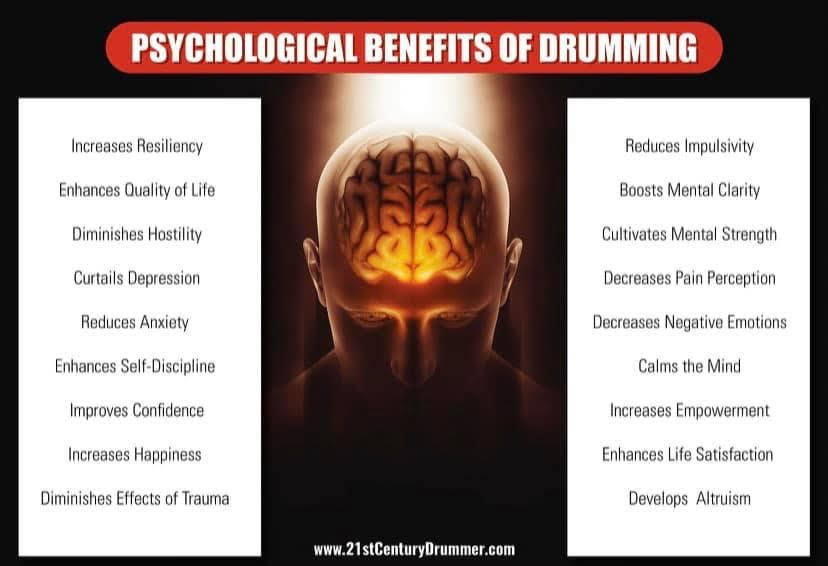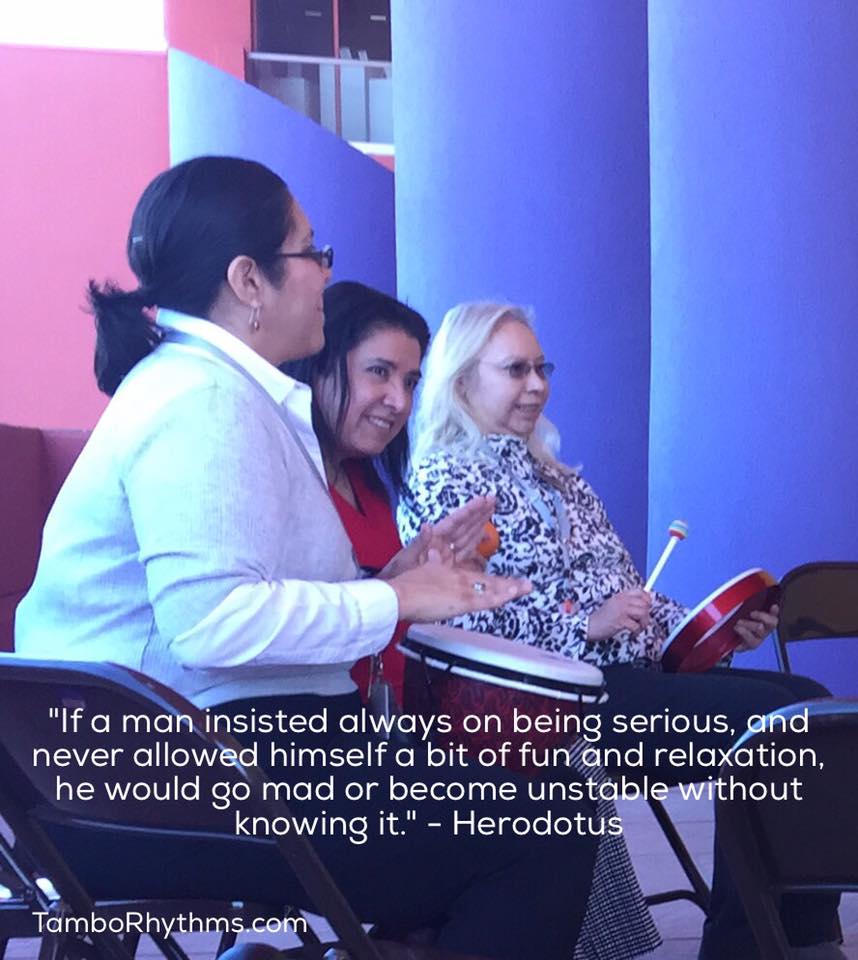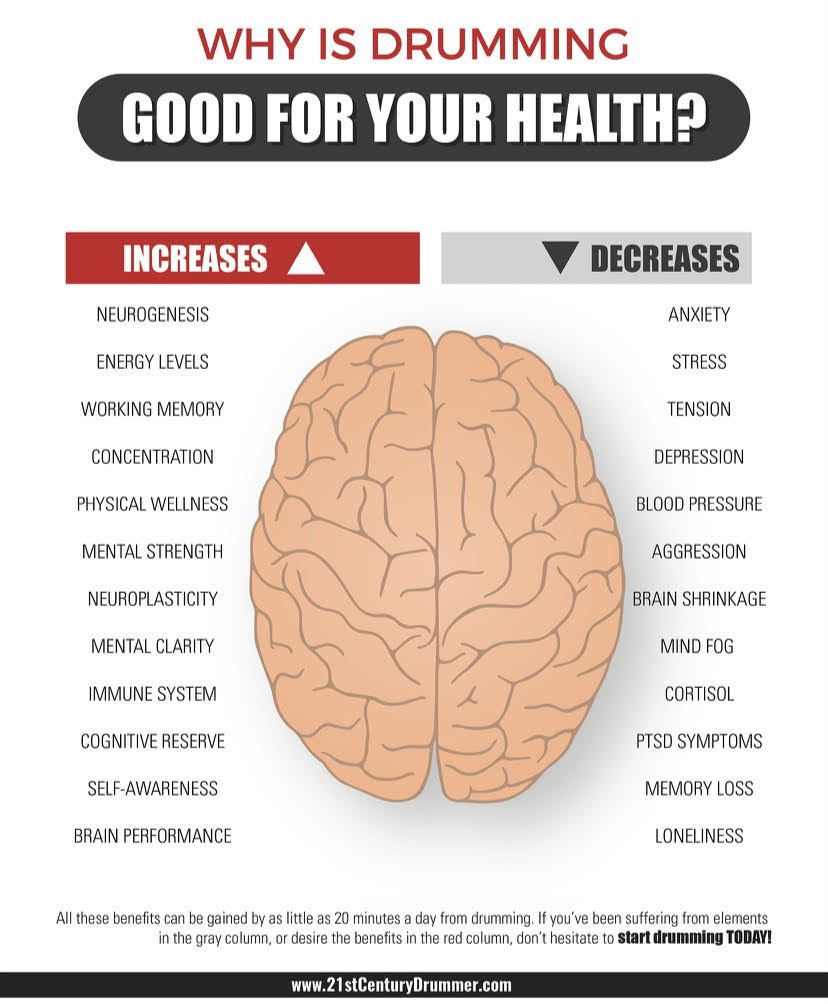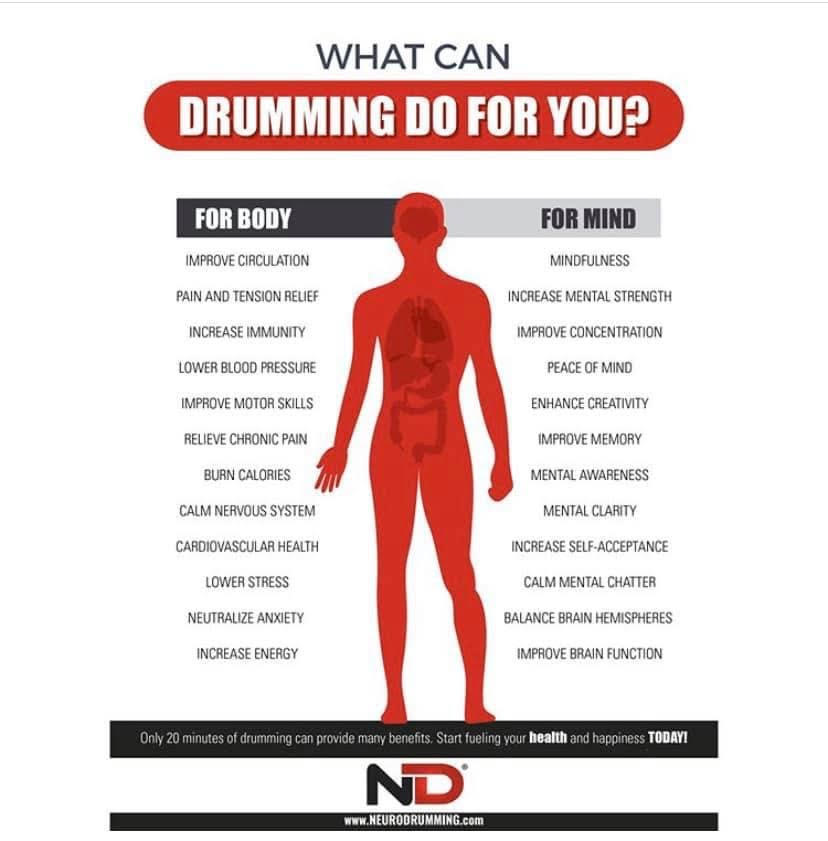Group (and individual) drumming benefits EVERYONE of all ages and abilities. It is truly a FUNctional experience! ???
1) May keep your brain young. It may decrease the risk of dementia through socialization, activates both hemispheres of the brain, and increases the growth and development of new brain cells through exercise. An area known as the hippocampus is very important for memory.
Reference:
“3 ways to keep your brain young, according to neuroscientists”
2) Releases endorphins and decreases stress. Endorphins give you a natural “high”, are the body’s natural “pain killer”, and boosts the immune system.
Endorphins: Natural Pain and Stress Fighters
3) May help to release and manage anger.
Reference:
Wellness-boosting sessions not just for hippies anymore
4) May be used to develop social-emotional skills: confidence/self-esteem, stress relief, impulse/ self-control, appreciating differences, mutual respect, listening skills/following directions, group cooperation, social involvement, working as a team/group cohesion, build relationships, responsibility, sharing, taking-turns, focus attention.
Reference: Core SEL Competencies
5) Promotes/supports the occupations of Play, Social Participation, Instrumental Activities of Daily Living (health management and maintenance), and Rest & Sleep. Rest & Sleep are supported by decreasing stress. Sensory skills (propriocetion, tactile, vestibular, auditory, visual) are also targeted. Fine and gross motor skills, strength, and endurance including eye-hand coordination can also be addressed.
Reference: Occupational Therapy Practice Framework: Domain and Process (3rd Edition)
Additional reading: Social Emotional Learning by AOTA


What is a Drum Circle?
A drum circle is a rhythm-based event that utilizes a variety of hand drums and percussion instruments to empower a community of participants with the ability to create beautiful, spontaneous music. Drumming and cooperatively creating rhythmic based music as part of a group is a kinesthetic activity that involves everyone regardless of musical experience or ability.
A drum circle benefits individuals by connecting them to a common purpose of creative self-expression. Drum circles are routinely utilized by community groups, corporations and organizations, support groups, children, youth at risk, well and unwell elderly, teachers, religious groups, college student groups, to name but a few. All of these groups have found the power that drum circles have to create an environment for joy, expression, team building, stress relief and communication.
Source: Drum Circle Facilitators Guild

